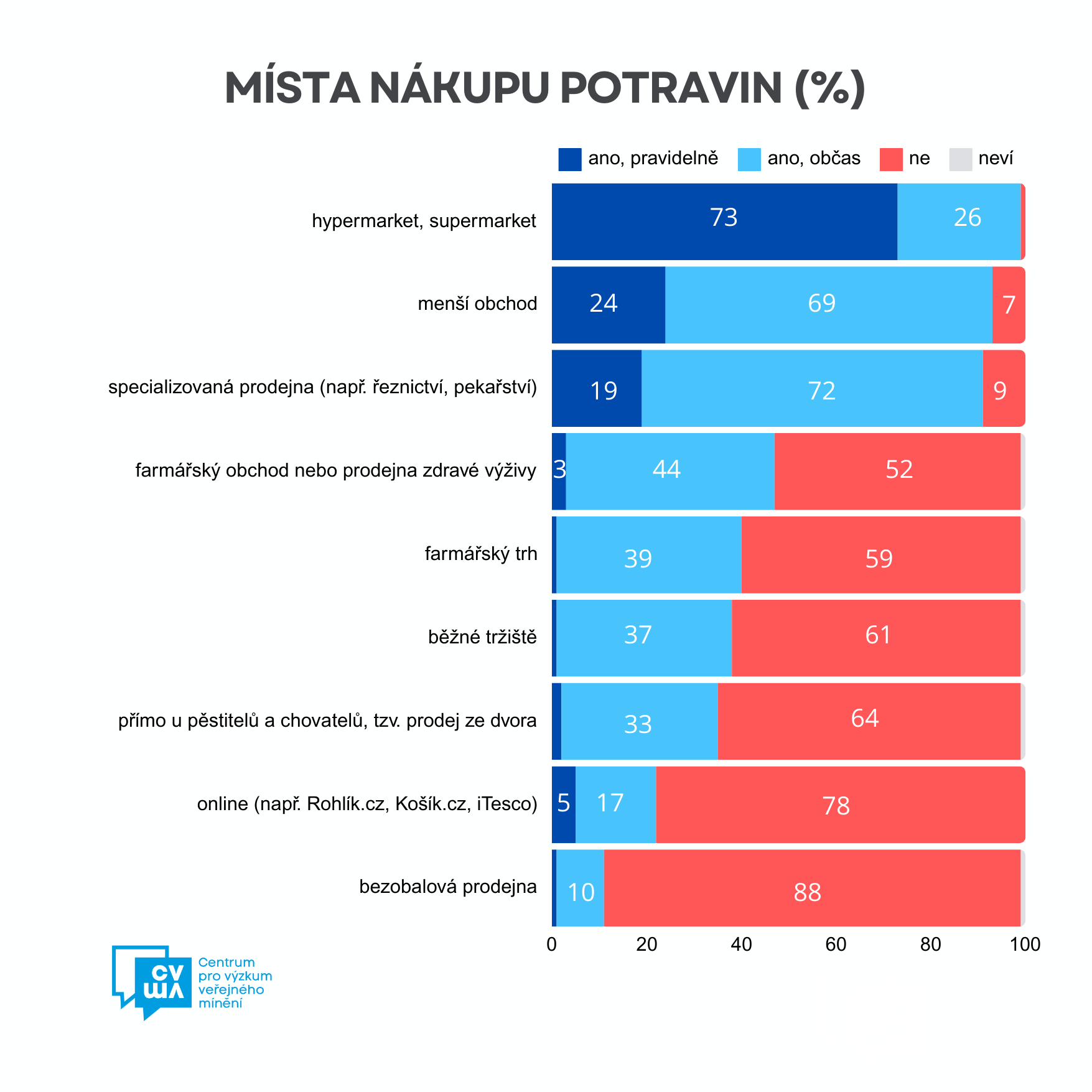In a special survey Potraviny (Food) 2024, the CVVM SOÚ AV ČR surveyed the opinions and attitudes of the Czech public towards food shopping. Respondents reported what activities and shopping habits their households have, how much they spend on food per month, and according to what criteria and where they shop. In the next part of the research we focused on environmental shopping behaviour, shopping without packaging or how relevant it is for Czech citizens to consider the environmental impact of food production.
The most frequent food shopper is almost two-thirds (63%), while just under a quarter shop once a week (24%) and a tenth shop every day (10%).
The most common places to buy food are hypermarkets (99% shop there at least sometimes), smaller shops (93%) and specialised shops such as bakeries, butchers etc. (91%). The least frequent purchases are made in convenience stores (10%). Over time, we observe a gradual increase in the use of import shopping services (22%).
Of the activities that are more likely to contribute to food waste, people are most likely to buy food because it is on sale or in a convenient package (91% of respondents do this at least occasionally) and least likely to buy food they do not need (31% of respondents do this at least occasionally).
The most frequently practiced activities that are perceived as beneficial to the environment are sorting waste (97% sort at least sometimes), using their own shopping bags (97%) and preferring food produced in the country (88%).
We have also seen a 10 percentage point increase in declared purchases of food without packaging over the last four years. Currently, 26% of respondents shop this way at least occasionally.
Over the last four years, the proportion of people who care about the environmental impact of the food they buy has increased by 7 percentage points to 56%.
Interest in food packaging has also increased by 15 percentage points since 2020. Packaging is currently relevant to almost two-fifths of respondents (39%).
If people avoid a particular material from which food packaging is made, it is most often plastic. For this material, we see a 14 percentage point increase in avoidance compared to 2020 to 31%.
"The activity was supported by the Academy of Sciences' AV21 strategy under the "Food for the Future" research programme. http://www.potravinyav21.cz/
¨>>>Fulltext available in Czech only<<<









